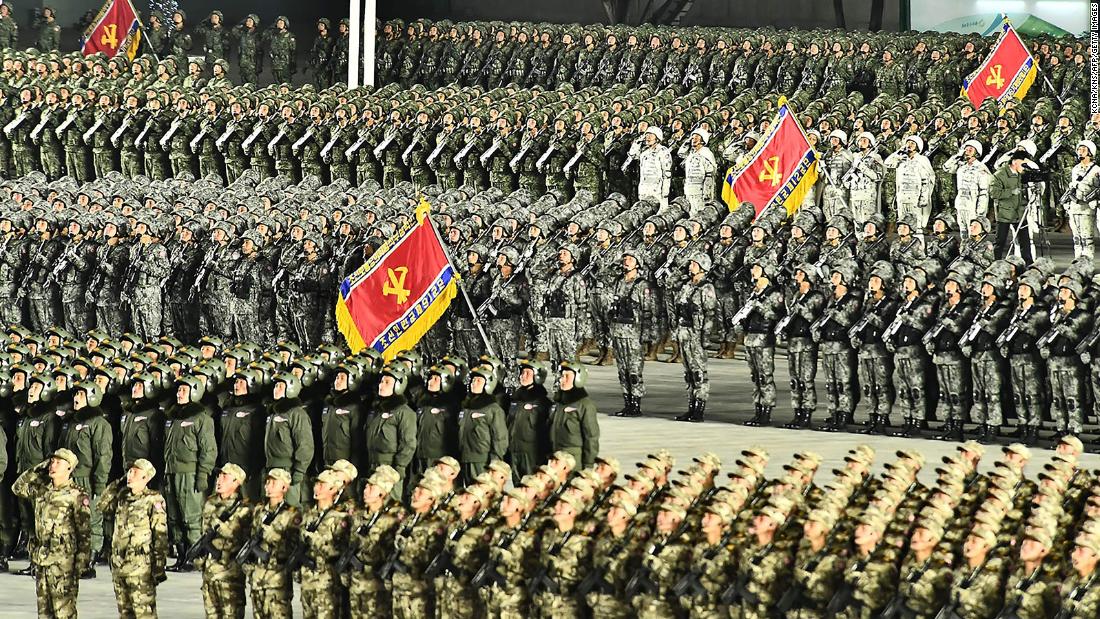The document accused leader Kim Jong Un’s regime of conducting “operations against financial institutions and virtual exchange offices” to pay for arms and keep North Korea’s economy afloat. An unidentified country that is a member of the UN said hackers stole $ 316.4 million worth of virtual assets between 2019 and November 2020, according to the document.
The report also claimed that North Korea “produced fissile material, maintained nuclear facilities and upgraded its ballistic missile infrastructure”, while continuing “to seek material and technology for these programs abroad”.
North Korea has been looking for years to develop powerful nuclear weapons and advanced missiles to combine them, despite their immense cost and the fact that such a search has turned the country into an international pariah prevented by the UN from conducting almost any economic activity with others countries.
UN investigators said an unidentified country said it was “highly likely” that North Korea could mount a nuclear device on a ballistic missile of any range, but it is still unclear whether these missiles will be able to re-enter the Earth’s atmosphere.
The report is authored by the UN Panel of Experts on North Korea, the body charged with monitoring the application and effectiveness of sanctions imposed against the Kim regime as punishment for its nuclear weapons and the development of ballistic missiles.
The details of the report, currently in secrecy, were obtained by CNN through a diplomatic source from the United Nations Security Council, which shared excerpts from the document on condition of anonymity. The Panel’s report consists of information received from UN member countries, intelligence agencies, the media and those fleeing the country – not North Korea itself. These reports are typically released every six months, one in early autumn and one in early spring.
It is not clear when this report will be released. Previous leaks have infuriated China and Russia, both members of the UN Security Council, leading to diplomatic deadlocks and delays.
Trump tried to get Kim to give up his pursuit of nuclear weapons through high-level diplomacy, betting that his negotiating skills could help him reach where previous presidents had failed. Trump became the first U.S. president to meet with a North Korean leader in 2018 and later met with him twice more, but failed to convince the young North Korean dictator to stop seeking nuclear weapons.
It is unclear how exactly US President Joe Biden will move forward, although his advisers have made it clear that South Korea and Japan will be strong allies. Jake Sullivan, Biden’s national security adviser, said last week that the government is conducting a policy review and that he will not “anticipate this review” in public.
A new source of income
The UN panel concluded that the tight border controls at North Korea’s Covid-19 affected the regime’s ability to bring in much needed foreign exchange. Pyongyang uses complex sanction evasion schemes to keep its economy afloat and circumvent severe UN sanctions.
Coal has historically been one of North Korea’s most valuable exports – the 2019 Panel report found that Pyongyang raised $ 370 million by exporting coal, but shipments since July 2020 appear to have been suspended.
This is likely because North Korea severed almost all of its ties to the outside world in 2020 to prevent an influx of coronavirus cases, including cutting almost all trade with Beijing, an economic lifeline that the poor country need to prevent its people from starving. While that decision appears to have kept the pandemic in check, it has brought the North Korean economy closer to the brink of collapse than it did decades ago.
Devastating storms, punitive sanctions and the pandemic hit North Korea’s economy in 2020, and experts. Experts believe that North Korea may be relying even more on its hackers to generate revenue during the pandemic because of the border closure.
Cooperation with Iran
The report cited several anonymous nations who claimed that North Korea and Iran have returned to cooperate on long-range missile development projects, including the trade in critical parts needed to develop these weapons. North Korea successfully tested three intercontinental range (ICBM) ballistic missiles in 2017 and exhibited a giant new ICBM at a public event in October.
Tehran seemed to deny that it was working with North Korea on missile technology. The report included comments from the UN Iran Mission, which said in December that the UN Panel of Experts received “false information and fabricated data may have been used in the Panel’s investigations and analyzes”.
